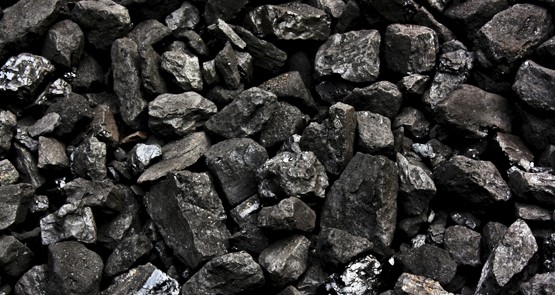
See, the sky didn’t fall. The US Federal Reserve lifted its key interest rate this morning and the commentary world went mad. The Fed feels the US economic recovery, which started years ago, is now strong enough to absorb a rate rise, and then some more in the next one to two years. We can’t say that about the Australian economy, nor can any other major economy take a similar stance. If anything, the European Central Bank, Bank of England and the Bank of Japan have their monetary policy settings on full easing. The Reserve Bank doesn’t, but its policy is probably as accommodating as it has been in history, with the cash rate at record lows. The talk here remains about possible rate cuts (now next year after all the forecasts for cuts in the past two or three RBA meetings failed to happen). So now it’s time to follow Glenn Stevens’ advice and “chill out” over Christmas and New Year. — Glenn Dyer
But watch jobs and inflation. It’s no longer just about US jobs growth, but also about inflation. Some commentators are starting to talk about US inflation approaching a “tipping point” where it could start rising if the jobs market continues to improve. US wages are growing at 2.3% (in the year to November, down from the 2.5% annual rate in the year to October), but inflation is well short of the Fed’s 2% target over time (it’s around 0.4%). The latest forecasts from the Fed chart inflation rising to average 1.6% next year (down from the 1.7% forecast in September).
Every blip in wages and inflation will lead to a plethora of reports and forecasts for the next US rate rise. But markets want volatility and movement, and central bankers like certainty and as little movement as possible (except in low-inflation growth). While acknowledging the transitory nature of the current low-inflation environment, US Fed chair Janet Yellen did express surprise that oil prices had fallen further — they lost 3% to 4% before and after the Fed decision was announced, and are now down 33% or more in the past three months, with half of that happening this month after OPEC refused to cut output. Yellen said if oil prices stabilise, that will produce a rise in inflation (other factors being equal). But Yellen did also acknowledge that inflation has been well under the Fed’s 2% target for the past three years, but she also said the Fed is now “reasonably confident” that inflation will rise back to the objective (2%) over the medium term following this year’s considerable improvement in the labour market. But this won’t mean “rate rise looms” (although there will be plenty of headlines to that effect). The Fed made it clear its policy stance would remain “accommodative” even after the increase. — Glenn Dyer
Oh, coal can be profitable. In the wake of the universal joy expressed about the outcome of the Paris conference on climate change, there was a timely reminder yesterday that coal is still a money spinner. The share price of NSW exporter Whitehaven Coal leapt yesterday after it revealed its earnings for the first half-year to December could exceed $100 million. The shares climbed 28% at one stage, before the fizz evaporated and they ended up at 6% (trimming the loss for the year to a still nasty 40%). Why the bullishness? Well, Whitehaven said it expects its earnings before interest, taxes, depreciation and amortisation (EBITDA) to be between $100 million and $105 million for six months to the end of this month, almost double the miner’s EBITDA performance in the first half of 2015 of $52.1 million. The company also lifted its expected production to more than 20 million tonnes from a previous maximum of 19.4 million tonnes. — Glenn Dyer
Ten’s clarion call. Yes, you did read right this morning: Ten Network’s independent chair, David Gordon, has called on the federal government to change the media ownership laws to allow the Murdoch clan to square the circle and allow Foxtel to make a bid for all of Ten. Foxtel already has a 14.9% stake and Gordon said the cross-media laws were outdated. Next he’ll be arguing for the sports anti-siphoning laws to be eased to allow Foxtel to get its hands on more sport.
Seeing as Ten’s billionaire club — James Packer, Lachlan Murdoch, Gina Rinehart and Bruce Gordon — either doesn’t want Ten or can’t bid for it, Foxtel is the next best idea. But shouldn’t Gordon be really trying to boost Ten’s performance, and not tout it as a takeover target? The reality is that Ten is firmly under the Murdoch clan’s corporate thumb with a third of the board seats and 22% of the shares (adding Foxtel and Lachlan Murdoch’s stakes together). Plus the network’s ad sales are in the hands of MCN, owned by Foxtel and others, and much of the programming already comes from Foxtel (such as Rugby Union and V8 cars) and from Shine, 50% owned by 21st Century Fox, the other clan company. Is David Gordon really a seat-warmer at Ten until the rules change? — Glenn Dyer







Crikey is committed to hosting lively discussions. Help us keep the conversation useful, interesting and welcoming. We aim to publish comments quickly in the interest of promoting robust conversation, but we’re a small team and we deploy filters to protect against legal risk. Occasionally your comment may be held up while we review, but we’re working as fast as we can to keep the conversation rolling.
The Crikey comment section is members-only content. Please subscribe to leave a comment.
The Crikey comment section is members-only content. Please login to leave a comment.